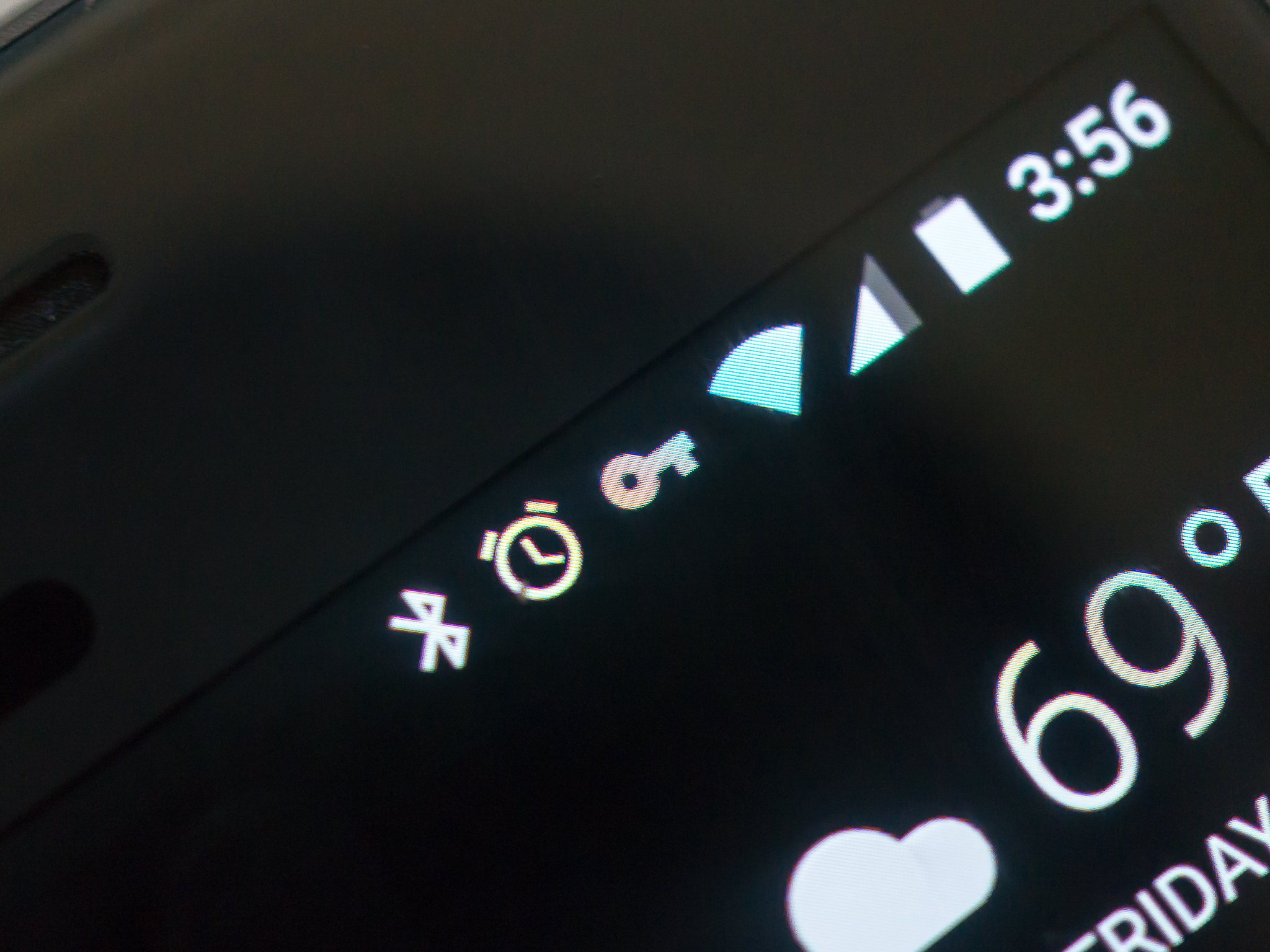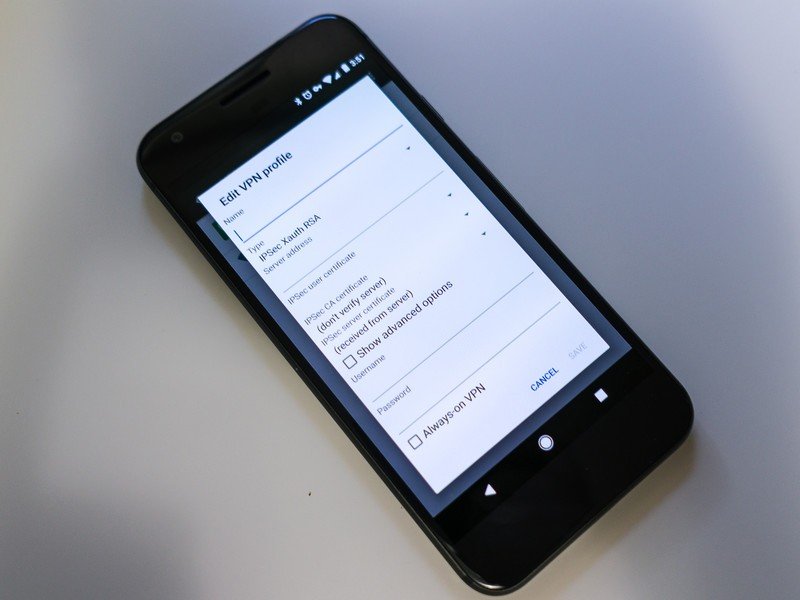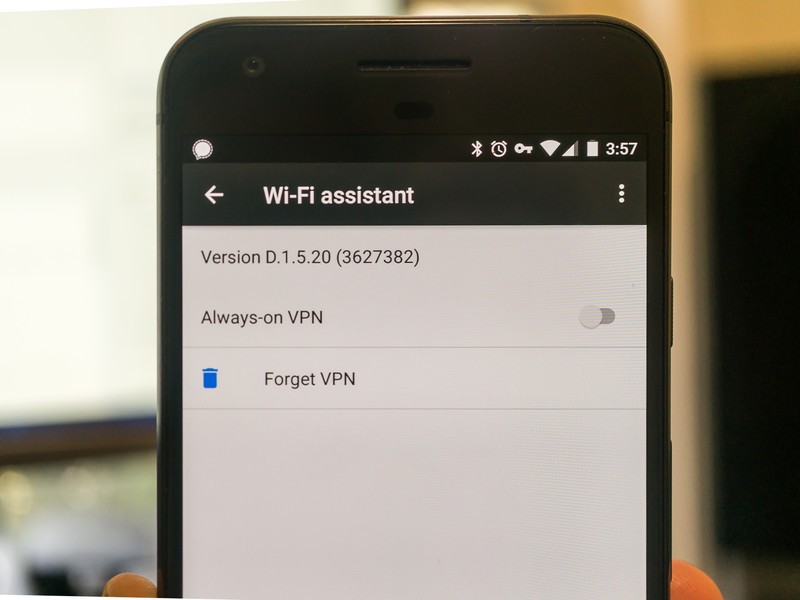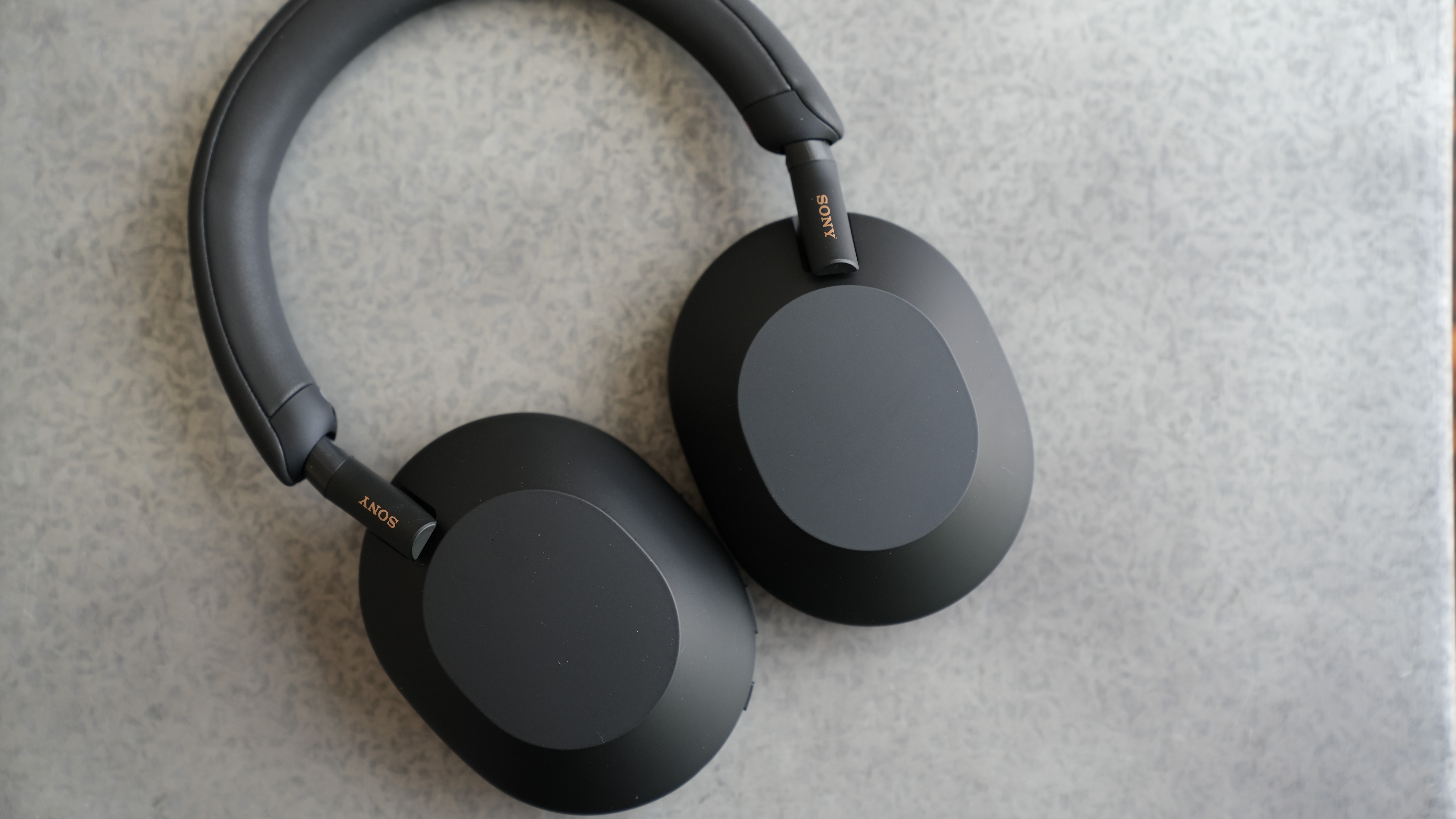Should I run a VPN on my Android phone?

With a large portion of the world working from home, VPNs are in the news more than ever. While the merits of which one is the best and why is a hot subject, little attention is paid to the obvious question — should I use one on my phone?
We're here to talk about if you should and the reasons why!
What is a VPN?
A VPN is a Virtual Private Network. That's a technical term for what's essentially a welcome middleman between you and the internet at large.
A VPN is a service you connect to that sends and receives data across the internet on your behalf. When you set up and enable a VPN, all of your internet traffic goes through it, both ways. Ideally, this traffic is encrypted and only the two parties who should have access to the information can use it.

A VPN is a gateway that sends and receives data on your behalf.
There are a lot of different ways to set up a VPN, and a lot of different providers such as NordVPN, IPVanish, TunnelBear, ExpressVPN, and more, with some being preferred for specific reasons. VPNs make excellent ad-blockers and companies like AdGuard offer a free VPN service that filters out ads from a known list of servers.
Your work may use a VPN that can encrypt data on your machine before you send it and it can only be decrypted by the server at work while leaving other traffic untouched. You also might want a U.S.-based VPN to try all the services Google hasn't rolled out the rest of the world yet.
However, mostly what people are talking about when they mention a VPN is a service that is designed to protect your identity on the internet by intercepting all the traffic, so that it looks like it's not coming from or going back to you or your location.
What advantages does a VPN offer?
In a broad sense, a VPN only does one thing: direct internet traffic. Luckily, directing internet traffic has a lot of advantages!
As mentioned above, you can block ads or create a private session between you and your work network. You can even have a VPN that directs traffic to a different server depending on your login — paid users of a service can have more perks and a faster connection than non-paid. There are two reasons most people use a VPN:
- Access to an otherwise restricted source. There are plenty of things like media streaming services that can't or won't let you use them if you're not in the right place. We see this a lot with professional sports streams. Depending on distribution rights, you might not be able to stream a Tigers game if you don't live in the greater Detroit area. Or maybe you want to watch specific content that's not available in your area from a service like Netflix. You can use a VPN that's hosted somewhere with geographic access and the service will work because that's where it thinks you are.
- Security and privacy. A VPN is not foolproof, but using one with wholly encrypted connections from a reputable company creates what's called a tunnel that acts as a one-stop connection between you and whatever you're doing on the internet. This makes the data difficult to intercept by anyone or any service (except the VPN company itself) and if it were grabbed, almost impossible to decipher. While a lot of people think of this as a way to hide who you are, it can also be used to verify who you are. Both are strong reasons to use a VPN, and people like journalists and investigators can see or say things in private. So can everyone else; privacy is not just for the select few.
Of course, people with bad intentions can use a VPN to have the same privacy and security. Like encryption, we shouldn't let this fact make us think that they are a bad thing overall. Here are all the best Android VPN services to consider.
The downsides of using a VPN
Like everything else, there are downsides to using a VPN. And we shouldn't gloss over them because we want to tout the privacy factor.
Operating a VPN is difficult so make sure you choose a good company.
The biggest is the technical hurdle. Effectively operating a VPN requires an understanding of network security issues and a way to make sure it is effective against them. All the privacy and security of using a VPN goes out the window if the administrator doesn't know exactly how things like the Same Origin Policy or CORS work and what they need to do to work around the issues they present where cookies (small files a website uses to "remember" you) are involved. This stuff is pretty complicated.
VPN service for as little as $6.49 per month!
Advertisement
This is why you have to know you are using a VPN service you trust. The company must be honest and open with its policies concerning privacy and be fully competent and up-to-date on how computer networking is constantly evolving. Don't try to rent an online server and run your own VPN if you don't know what you're doing. Don't jump on a friend's home-brewed VPN unless they know what they are doing. Stick to recommend companies that have been scrutinized and audited by the pros.
A couple of other things that might not be great about using a VPN:
- The connection can be terrible. You might have great internet service and all the things you like are fast, but when you place a VPN in the mix you probably will see things get slower. Sometimes, too slow. The good news is that another VPN may not be as slow.
- You share an internet address with others. A VPN masks your internet address (I.P.) and replaces it with its own. That means if I get blocked from a service while using that address and you get it the next time, you're blocked, too. An otherwise excellent VPN company may end up being blocked at your favorite website, or your bank, or the IRS site you file your taxes through. This can also add extra scrutiny by law enforcement when you've done nothing wrong: The person using that address before you may have been doing something sketchy.
So, should I or shouldn't I?

Sure!
While not everyone wants or needs to use a VPN if you do there's no reason not to use it with your phone. Most VPN companies have an easy to setup app that gets you connected and has an easy way to turn things on and off. Some even have extras like bandwidth monitoring so you know how close you are to any data limits. A properly configured VPN (we go back to those technical hurdles) should work for all data that moves in and out of your phone, whether you're on Wi-Fi or using your data connection.
A VPN works with your web browser and every app on your phone.
You will have a little bit of extra overhead, as an app that encrypts and decrypts the data and properly routes it through the VPN is running in the background, but the impact is minimal with a properly coded VPN app or a manual setup. You probably won't even notice a proper VPN app is running unless you look for it. Google itself uses a VPN for Google Fi users who connect to public Wi-Fi hotspots. You won't know anything extra is happening.
The downsides still remain, but as long as you're using a recommended company that has a safe and secure VPN service, you'll probably never run into any of them. We hate to say "probably" as much as you hate hearing it, but it's true. Customers who would cause themselves to be blacklisted from a service or draw the attention of law enforcement usually aren't using consumer VPN services.
Look for a company that's recommended by other people who share similar interests, has a great app for your phone, and has a clear and concise set of policies (and read them). If you want or need a VPN, there's no reason not to use it on your phone!
We test and review VPN services in the context of legal recreational uses. For example:
1. Accessing a service from another country (subject to the terms and conditions of that service).
2. Protecting your online security and strengthening your online privacy when abroad.
We do not support or condone the illegal or malicious use of VPN services. Consuming pirated content that is paid-for is neither endorsed nor approved by Future Publishing.
Get the latest news from Android Central, your trusted companion in the world of Android

Jerry is an amateur woodworker and struggling shade tree mechanic. There's nothing he can't take apart, but many things he can't reassemble. You'll find him writing and speaking his loud opinion on Android Central and occasionally on Threads.
